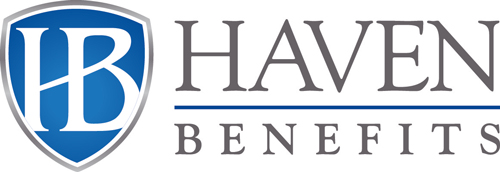DOL Audit Warning Signs & Compliance with ACA
The Department of Labor’s (DOL) Employee Benefits Security Administration (EBSA) has the authority to conduct audits on benefit plans that are governed by the Employee Retirement Income Security Act (ERISA). The DOL’s Employee Benefits Security Administration (EBSA) protects the integrity of pensions, health plans, and other employee benefits for more than 150 million people.
Common triggers for a DOL audit include preventable causes, such as:
- Participant complaints. If any participants complain to the DOL about potential ERISA violations, their company’s plan will likely be subjected to an audit.
- Incomplete or inconsistent information. Audits are more likely to occur when Form 5500’s are not submitted, are submitted with inconsistent information from year to year or when they are missing information in general.
The DOL is using its authority to enforce compliance with the Affordable Care Act (ACA). DOL audit letters may request that health plan sponsors provide documents demonstrating compliance with the ACA’s mandates. The DOL’s audit requests related to ACA compliance have been divided into three categories: (1) grandfathered plans; (2) non-grandfathered plans; and (3) all health plans.
(1) Grandfathered Plans: a group health plan that existed on March 23, 2010, (the date the ACA was enacted) and has stayed within the realm of allowed changes to maintain its status. Grandfathered plans are exempt from certain ACA requirements, such as preventive health services without cost-sharing, coverage of clinical trials, and copays and deductibles falling under out-of-pocket maximums. If a plan loses its grandfathered status, it must comply with additional ACA requirements.
A health plan with grandfathered status must provide a notice to participants every time it distributes materials describing plan benefits, explaining that, as a grandfathered plan, it is not subject to certain ACA requirements. For health plans that claim grandfathered status under the ACA, the DOL has been requesting:
- Records documenting the terms of the plan on March 23, 2010, and any additional documents to confirm the plan’s grandfathered status; and
- The participant notice of grandfathered status included in materials that describe the benefits provided under the plan.
(2) Non-Grandfathered Plans: a group health plan that was effective after the ACA was signed into law on March 23, 2010, or it may have existed before the ACA, but lost its grandfathered status at a renewal. Non-grandfathered plans are required to implement an improved internal appeals process, meet minimum requirements for external reviews, cover preventive health services without cost-sharing, and comply with cost sharing limits.
For non-grandfathered health plans, DOL audit letters have been requesting:
- Documents related to preventive health services for each plan year beginning on or after Sept. 23, 2010;
- The plan’s internal claims and appeals procedures;
- Contracts or agreements with independent review organizations (IROs) or third-party administrators (TPAs) providing external review;
- Notices regarding adverse benefit determinations and final external review determination notices; and
- The choice of provider notice informing participants of the right to designate any participating primary care provider, physician specializing in pediatrics in the case of a child, or health care professional specializing in obstetrics or gynecology in the case of women.
(3) All Plans: some ACA mandates apply to all health plans, regardless of whether they have grandfathered status. For example, all plans must provide dependent coverage up to age 26 and must comply with ACA’s restrictions on rescissions of coverage and lifetime and annual limits on essential health benefits.
The DOL has been requesting the following information from both grandfathered and non-grandfathered health plans:
- A sample notice describing enrollment opportunities for children up to age 26 for plans with dependent coverage;
- A list of participants who have had their coverage rescinded and the reasons for the rescissions;
- Documents related to any lifetime limit that has been imposed under the plan since Sept. 23, 2010; and
- Documents related to any annual limit that has been imposed under the plan since Sept. 23, 2010.
As more ACA reforms continue to take effect, the DOL will likely expand its audit requests. For example, the DOL will likely request documents that show a health plan’s compliance with the ACA reforms that became effective for plan years beginning on or after January 1, 2014, such as:
- The prohibition on pre-existing condition exclusions for all enrollees;
- The requirement for grandfathered plans to make coverage available to adult children up to age 26 regardless of whether they are eligible for other employer-sponsored group health coverage;
- The prohibition on excessive waiting periods; and
- Required coverage for clinical trial participants.
Employers that receive DOL audit letters may be surprised and overwhelmed by the number of documents requested by a specific date. Although employers generally have no way of knowing whether they will be selected for a DOL audit, it is important for employers to retain documents that will help them respond to a DOL audit request in the event this occurs. Inadequate responses to the DOL could trigger additional document requests, interviews, on-site visits and even DOL enforcement actions.
To be safe, employers should be prepared to demonstrate their compliance with ACA by producing documents. Employers should maintain and be able to produce:
- Records of the steps they have taken to comply with ACA’s requirements, including plan participation information and communications with participants;
- Plan amendments or procedures that were adopted to comply with ACA, as well as contracts or agreements with service providers, such as IROs and TPAs; and
- Notices that were provided under ACA, such as the notice of grandfathered status and notice of enrollment for children up to age 26.
Also, if a plan’s ACA compliance documents are maintained by a service provider, the employer should make sure the service provider is retaining the necessary documents and will be able to produce them upon request.


